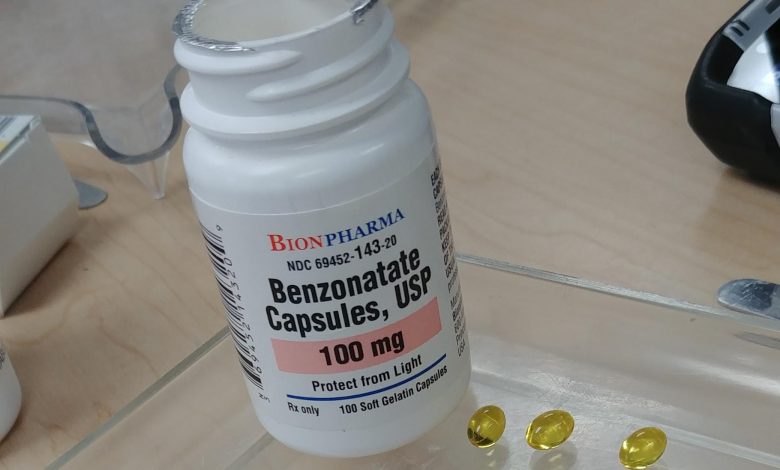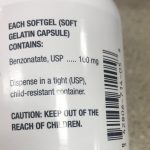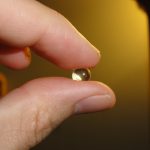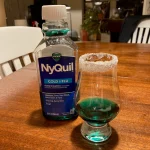Is Benzonatate A Steroid? See 10 Differences

What are steroids?
Steroids are a man-made version of chemicals, known as hormones, that are made naturally in the human body. Steroids are designed to act like these hormones to reduce inflammation.
They’re also known as corticosteroids and are different from anabolic steroids used by bodybuilders and athletes. Corticosteroids were first used in clinical practice in 1949 for the treatment of rheumatoid arthritis. Indications since then have spanned multiple specialties and organ systems, including dermatology, rheumatology, immunology, and oncology.
What is Benzonatate?
Benzonatate, sold under the brand name Tessalon among others, is a medication used to try to help with the symptoms of cough and hiccups. It is taken by mouth. Benzonatate is thought to work by reducing coughing by anesthetizing certain receptors located in the breathing passages and lungs, dampening down their activity, and reducing the cough reflex.
The use of benzonatate is not recommended in those under the age of ten. Effects generally begin within 20 minutes and last up to eight hours.
Benzonatate comes as a liquid-filled capsule and a capsule to take by mouth. It is usually taken three times a day as needed. Follow the directions on your prescription label carefully, and ask your doctor or pharmacist to explain any part you do not understand. Take benzonatate exactly as directed. Do not take more or less of it or take it more often than prescribed by your doctor.
Swallow the capsules and liquid-filled capsules whole; do not break, dissolve, cut, crush, suck or chew them. If the medication is released into the mouth, it may make the mouth numb and cause choking. Do not eat or drink if you feel numbness or tingling in your mouth, tongue, throat, or face. If feelings of numbness or tingling continue or get worse, get medical help right away.
Is Benzonatate A Steroid?
No, benzonatate is not a steroid but belongs to a class of medications called antitussives (cough suppressants) which work by reducing the cough reflex in the lungs and air passages. Benzonatate is a butylamine, structurally related to other polyglycol ester local anesthetics such as procaine and tetracaine. Benzonatate may be used alone or with other medications.
Benzonatate is the only non-narcotic antitussive available as a prescription drug. Antitussives are typically used to treat a dry cough caused by allergies, respiratory illnesses, or infections. Viral infections, like a cold or the flu, can often irritate the airways of the lungs and lead to bronchial inflammation, which can result in a cough. Antitussives can also treat post-viral cough or a persistent cough that develops after an infection has resolved.
Although many types of cough are best treated with supportive care methods, such as rest, hydration, and the use of a humidifier, a healthcare provider may recommend an over-the-counter or prescription antitussive. Antitussives are not recommended for treating productive, or mucus-producing coughs due to an increased risk of mucus buildup and breathing problems.
Here are 10 differences between benzonatate and steroids:
1. Benzonatate is a non-narcotic cough suppressant, while steroids are a class of anti-inflammatory drugs.
2. Benzonatate works by numbing the throat and lungs, while steroids work by reducing inflammation in the body.
3. Benzonatate is used to treat cough, while steroids are used to treat a wide range of conditions, including allergies, asthma, and autoimmune disorders.
4. Benzonatate is available as an oral capsule, while steroids are available in various forms, including tablets, injections, and inhalers.
5. Benzonatate is generally considered safe and has a low risk of side effects, while steroids can have serious side effects if used long-term or in high doses.
6. Benzonatate should not be taken with alcohol, while steroids can interact with a wide range of medications.
7. Benzonatate is not recommended for use in children under 10 years old, while steroids can be used in children under medical supervision.
8. Benzonatate is a pregnancy category C drug, meaning it may not be safe to use during pregnancy, while steroids may be used in pregnancy under medical supervision.
9. Benzonatate is not a controlled substance, while some steroids are classified as controlled substances due to their potential for abuse.
10. Benzonatate does not require a prescription in some countries, while steroids are typically only available with a prescription.
Can I take benzonatate with steroids?
Although no interactions exist between benzonatate and steroids such as prednisone this does not necessarily mean no interactions exist. Always consult your healthcare provider. Most multi-symptom cough medications should not be combined with each other. If you need to take more than one medication at a time, always check the labels and be sure you aren’t taking multiple medications with the same or similar active ingredients or modes of action.
What side effects can benzonatate cause?
Benzonatate may cause side effects. Tell your doctor if any of these symptoms are severe or do not go away:
• nausea
• constipation
• drowsiness
• headache
• dizziness
• stuffy nose
• feeling chilly
• burning in the eyes
Some side effects can be serious. If you experience any of these symptoms, call your doctor immediately:
• rash or hives
• itching
• tightening of the throat
• difficulty breathing or swallowing
• numbness of the chest
• confusion
• hallucinations (seeing or hearing things that do not exist)
Benzonatate may cause other side effects. Call your doctor if you have any unusual problems while taking this medication.
If you experience a serious side effect, you or your doctor may send a report to the Food and Drug Administration’s (FDA) MedWatch Adverse Event Reporting program online (http://www.fda.gov/Safety/MedWatch) or by phone (1-800-332-1088).





